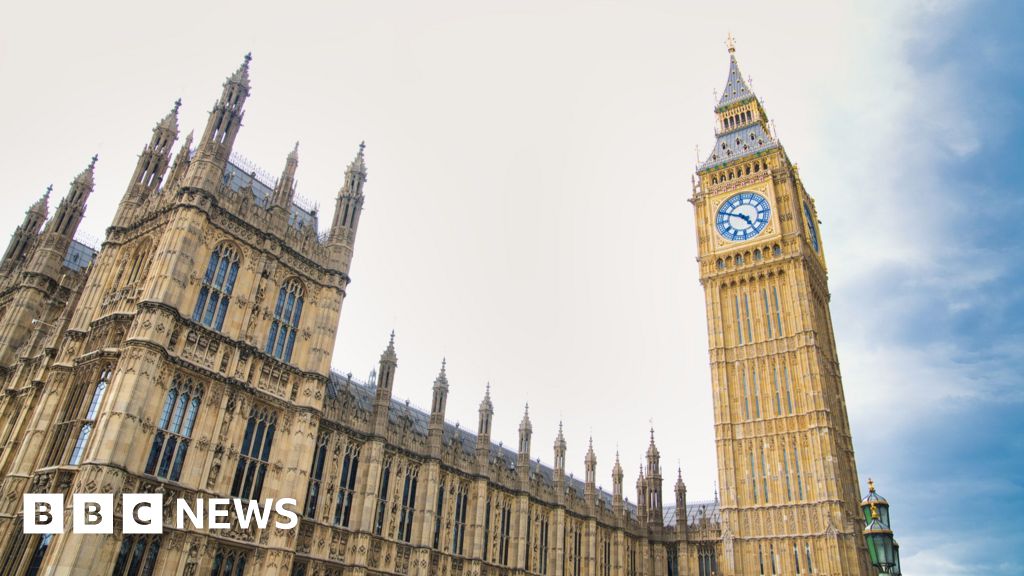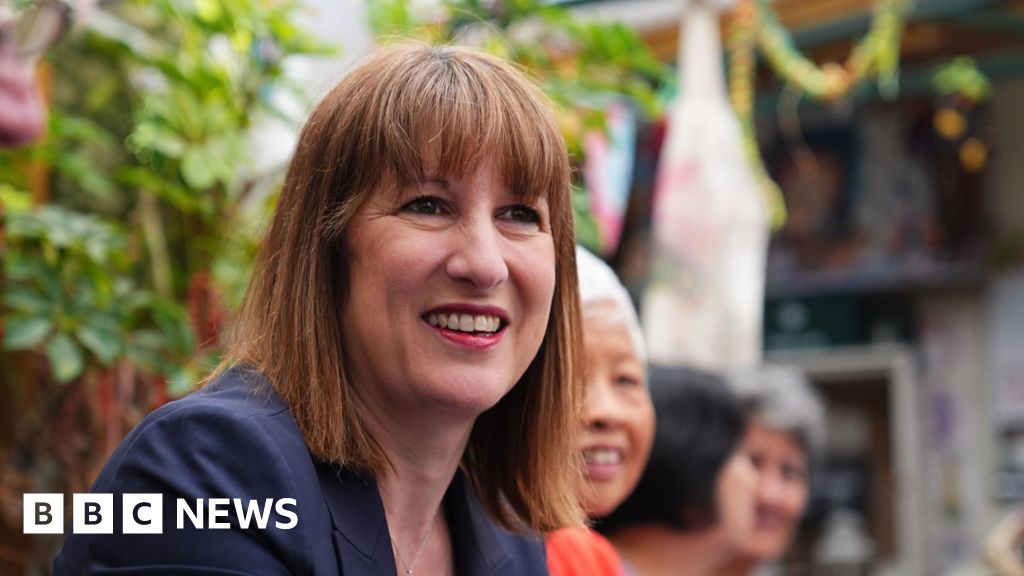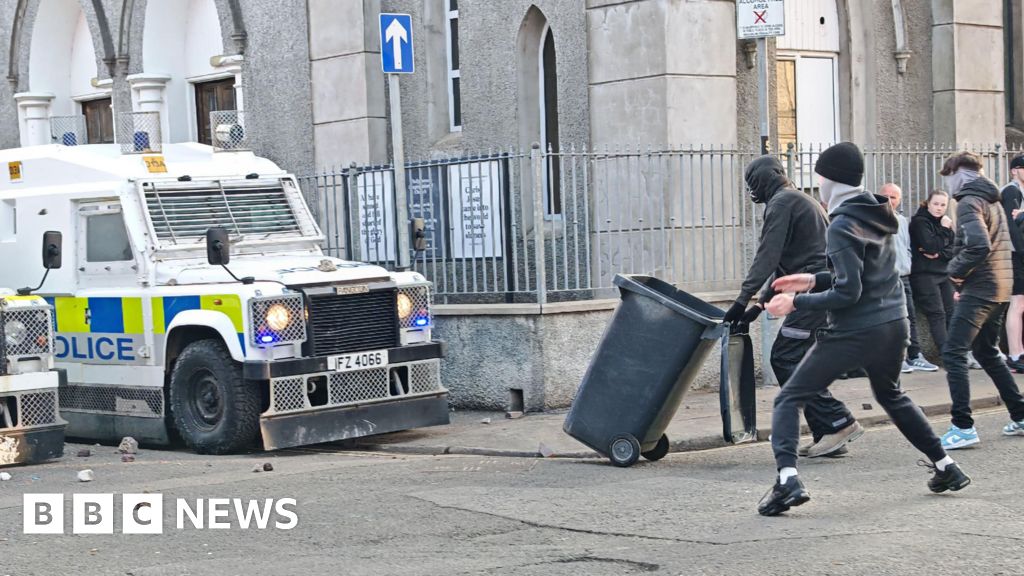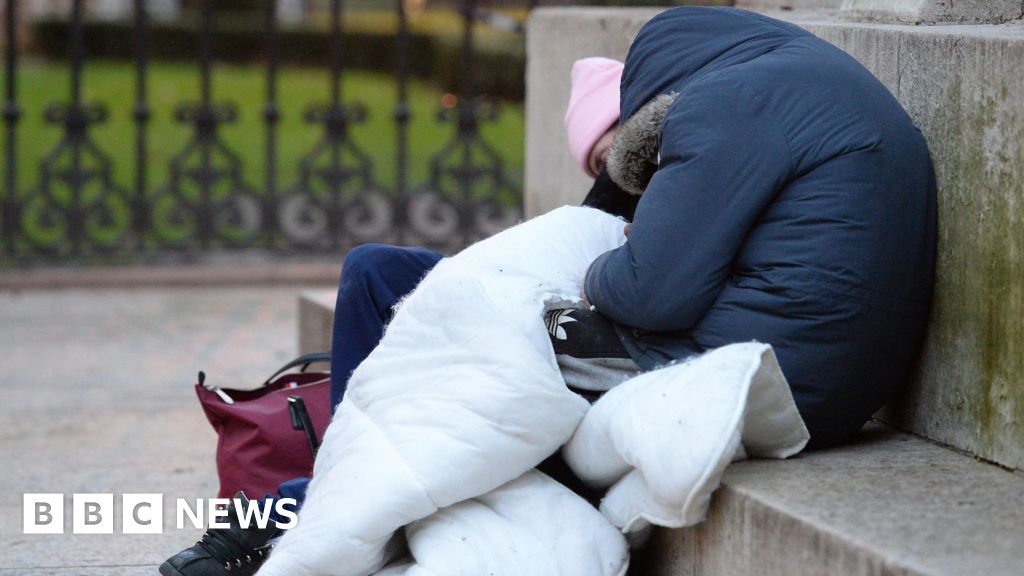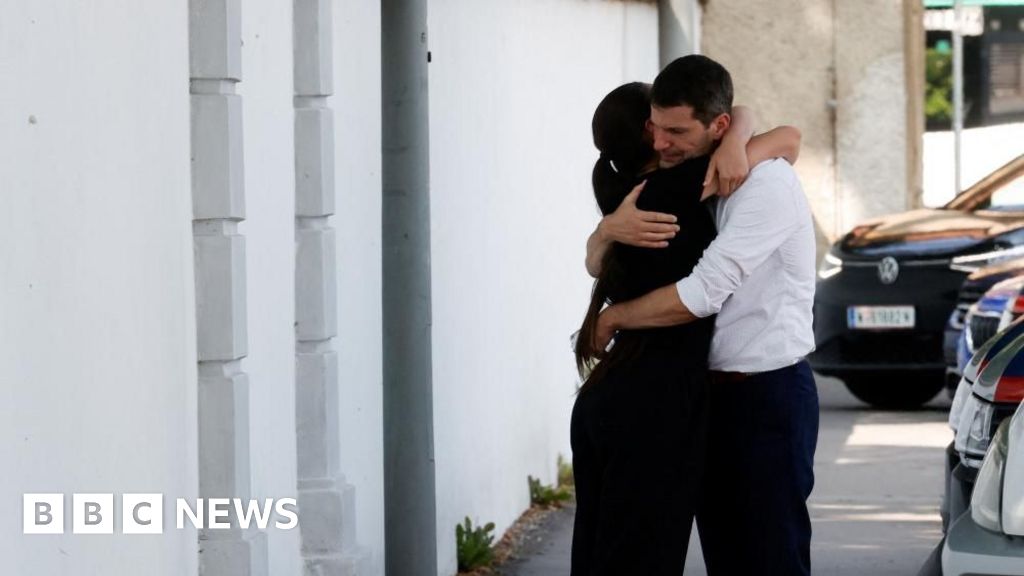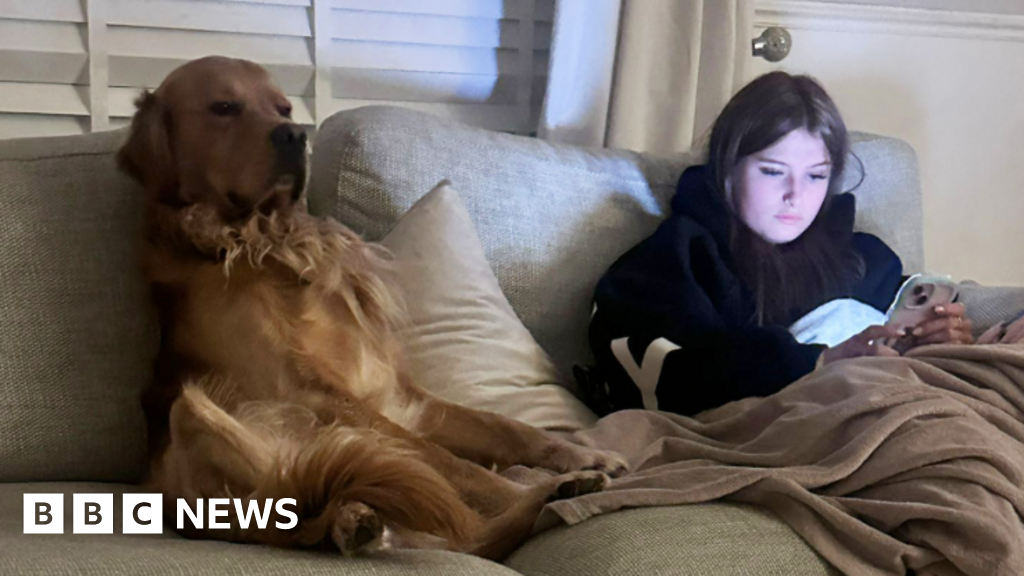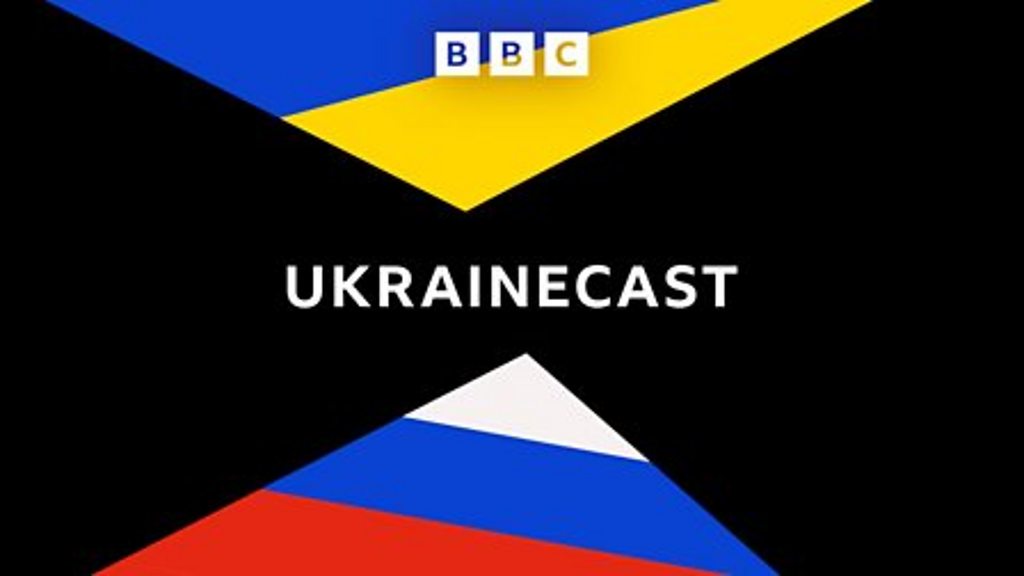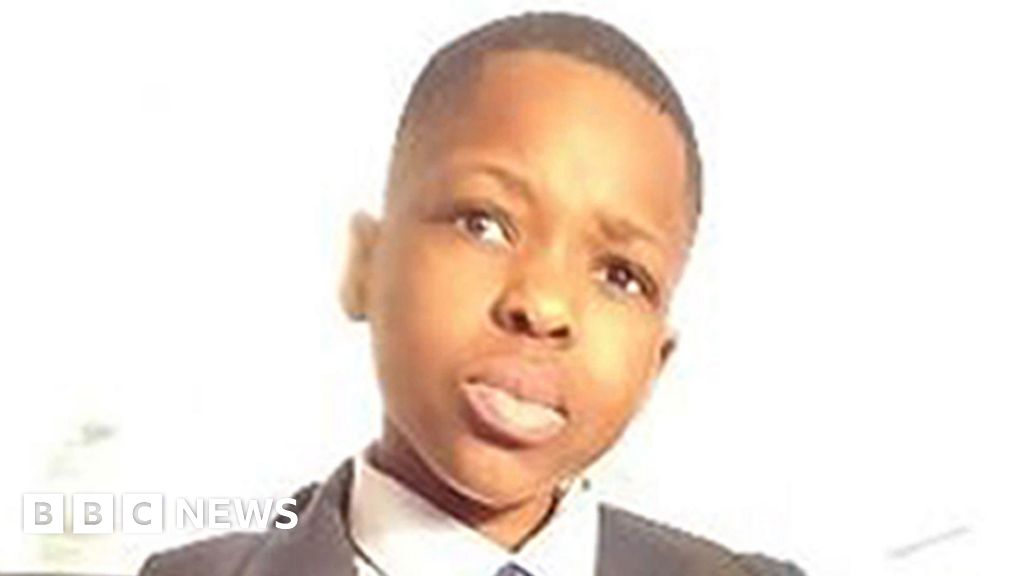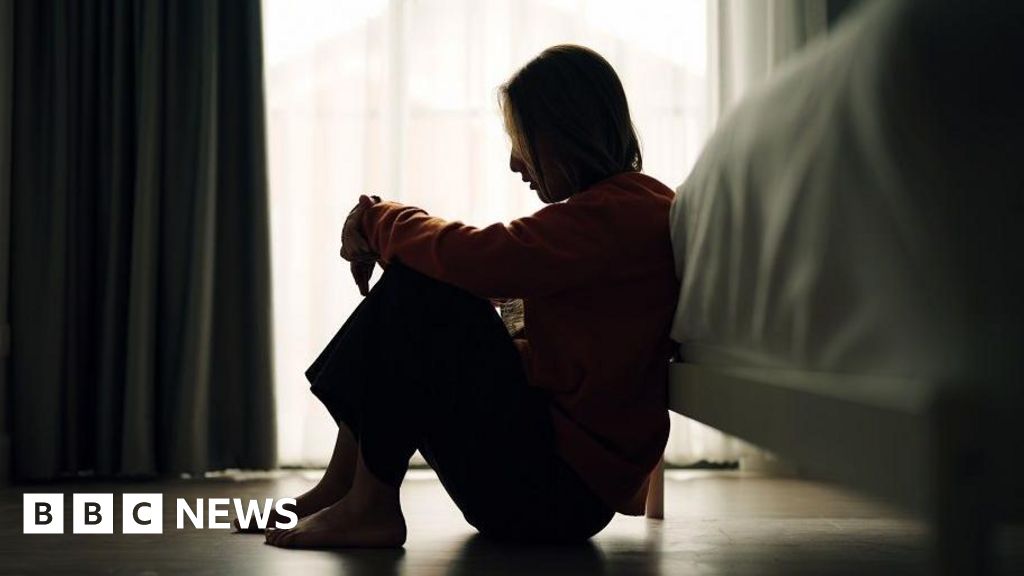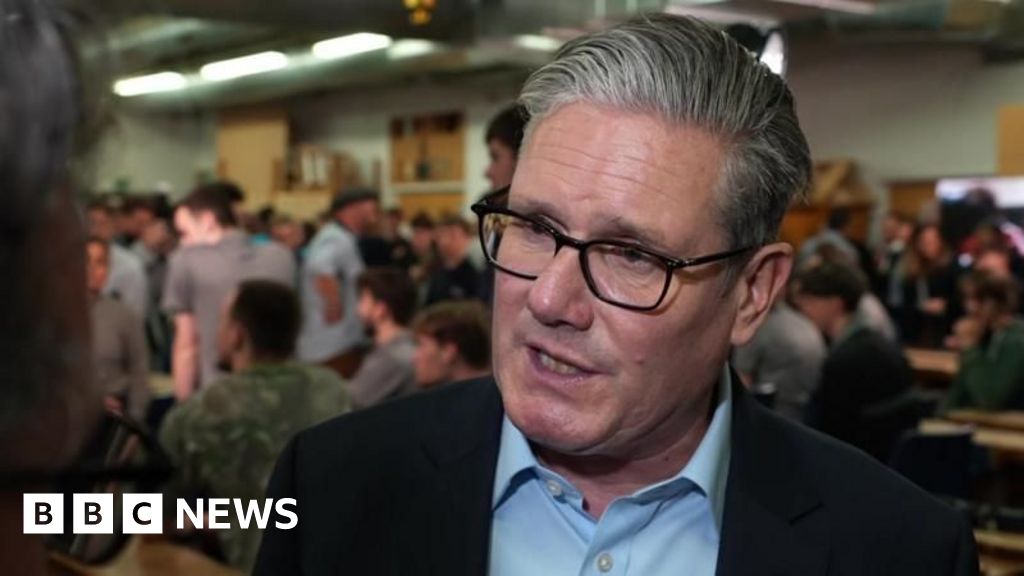Alison Holt
Social affairs editor

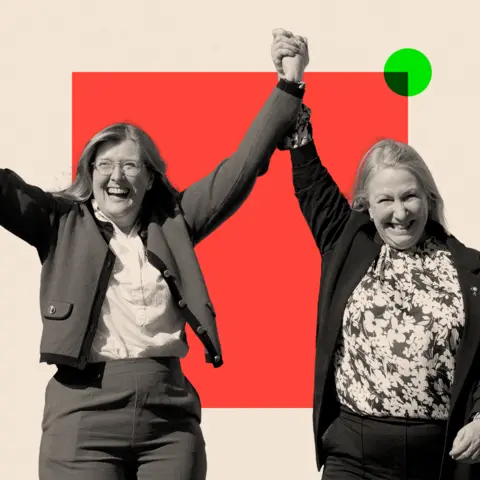 BBC
BBC
"A victory for common sense" or "devastating" – the contrasting reactions to the statement by five Supreme Court judges that legally the term "woman" means a biological woman.
Behind the different responses lie many of the often bitter and vitriolic arguments that set the country on a long, tricky road towards Wednesday's unambiguous judgement.
When the highest court in the land ruled that sex is binary - meaning legally it should be interpreted as referring to either a biological man or a biological woman - it was providing clarity that had been missing from such conversations for years.
Words like "woman" and "sex" had become loaded with different meanings depending on your viewpoint. Language that for centuries had been uncomplicated and accepted, became a battleground.
The judgement is intended to draw a line under that.
It argues that for the Equality Act to be consistent, the term woman has to mean a biological woman. That does not include biological males, even if they have certificates to say they have changed gender.
This means that where there are, for instance, women-only spaces, then a biological man who identifies as a woman cannot use them. That includes changing rooms, toilets, women's refuges, single-sex hospital wards and anywhere designated as for one sex only.
How much change that will mean in practice will be set out in detailed guidance. Until then, there remain lots of questions and some confusion - and that is challenging in an area where views are so polarised.
From jubilance to devastation
It was Baroness Falkner, the woman who heads the watchdog that regulates equality laws, who described the judgement as a victory for common sense.
She added it was only such a victory if you recognised trans people, "that they exist, they have rights, and their rights must be respected".
She also told the BBC about the abuse she had faced since taking over as chair of the Equalities and Human Rights Commission (EHRC) in 2020.
She had previously told the Times that women had the right to question gender identity, and that had led to some very personal abuse from those who disagreed with her.
"I had not realised how difficult the job would be," she said. "It has taken a toll, but if you are in public life you have to take that."

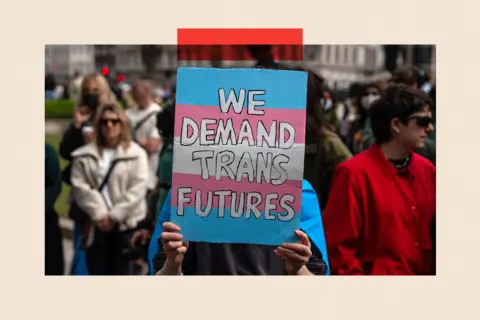 Getty Images
Getty Images
The second response to the judgement was from the trans rights campaign group TransActual, which described the Supreme Court judgement as devastating.
One of its activists, Jane Fae, told the BBC the judgement felt like a physical body blow, and that it was as if trans people were being excluded from society.
"Today we're feeling very alone" she said. "What does this mean - can I use this loo, can I do that, can I do the other?"
In contrast, the women's groups who fought the case feel vindicated and jubilant.
Helen Joyce, the director of advocacy at the campaign group Sex Matters, says the ruling is "incredibly important for the half of humanity who need single-sex spaces".
Women's groups argue that the ruling is important for reasons of privacy, safety, dignity and discrimination.
The Supreme Court case was brought by a group called For Women Scotland. It wanted to overturn Scottish legislation which said 50% of members on public boards should be women - and trans women were included in their definition.

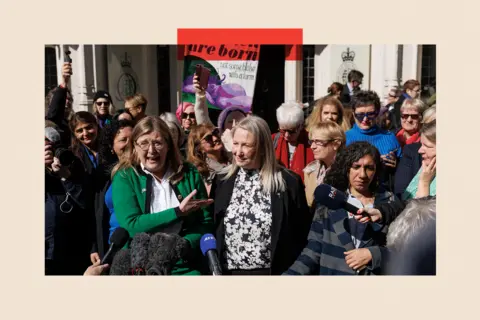 Getty Images
Getty Images
Directors of For Women Scotland speak to the media outside the Supreme Court on April 16, 2025
The group lost its case in Scotland's highest court but appealed to the UK Supreme Court. The case was heard towards the end of last year.
"What we wanted was clarity in the law - when something is described as a single-sex service, a single-sex space, that this relates to biology," Susan Smith from For Women Scotland told the BBC.
Beginnings of the culture wars
Over time the arguments over how a woman is defined had become increasingly angry, bitter and divided, because the stakes were high for all involved.
For transgender people, who say they often face victimisation and harassment, the battles were rooted in attempts to win better legal protection.
"Legal gender recognition is essential for trans people to enjoy the full spectrum of rights each of us is entitled to, including safety, health and family life," according to Sacha Deshmukh, the chief executive of Amnesty International UK. The charity opposed For Women Scotland's case in the Supreme Court.
The question of how to achieve legal recognition rose to prominence in 2002 when two judgements at the European Court of Human Rights found the UK was breaching human rights by failing to legally recognise transgender people in their acquired gender.
This eventually led to the 2005 Gender Recognition Act, which allowed a trans person to apply for a Gender Recognition Certificate (GRC). This recognised their preferred gender rather than their biological sex, allowing official documents like birth certificates to be changed to reflect that.

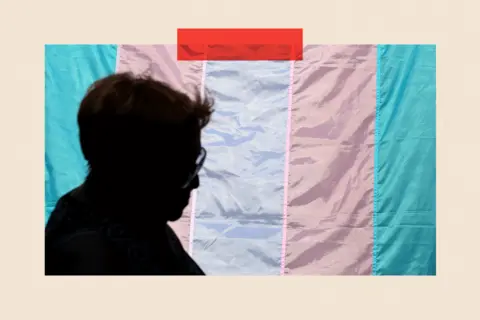 Getty Images
Getty Images
But it was a long-winded process requiring two doctors to sign it off and for the person to "live in their acquired gender" for at least two years. Only about 8,000 people have applied for a GRC since they came into being, according to government figures.
Campaigners began calling for the process to be simplified. In a response to a 2020 government consultation on amending the GRA, Stonewall, the LGBTQ+ rights organisation, called for a "move to a de-medicalised and straightforward legal gender recognition process".
Gradually these calls gained momentum.
In 2022, the Scottish government introduced a law that would allow people to "self-identify" in their desired gender. This was later blocked by the UK government and eventually dropped as a Scottish policy.
As the rights of trans people were being debated, women's groups started pushing back about what that meant for biological women.
The meaning of words like "woman" and "sex" took on new significance, if someone who was biologically male had a certificate that identified them as a woman for legal purposes.
Under the 2010 Equality Act, sex was a protected characteristic, and so was gender reassignment. With the very meaning of those categories in dispute, legal experts said it set the protections of one group against the protections of another.
The complexities mean courts and tribunals have frequently been called on to arbitrate.
And social media has often provided a starting point for angry disputes, connecting and amplifying voices, and in many cases, leading to more entrenched viewpoints. It had become a culture war.
How the debate began to change
In 2019, tax expert Maya Forstater lost her job because she tweeted that she did not believe people could change their sex. She said biological sex was immutable and not the same as gender identity.
As a result, her work contract was not renewed. Her employer said it wanted to build an inclusive workplace.
She lost her case at an employment tribunal case, but an Appeal Court judge later ruled that gender critical beliefs were protected by the Equalities Act. In 2023, she was awarded £100,000 compensation for unfair dismissal.
It was a high-profile battle through tribunals and courts which put employers' policies on inclusion under the spotlight and raised questions about whether by protecting the rights of one group, another was being discriminated against.

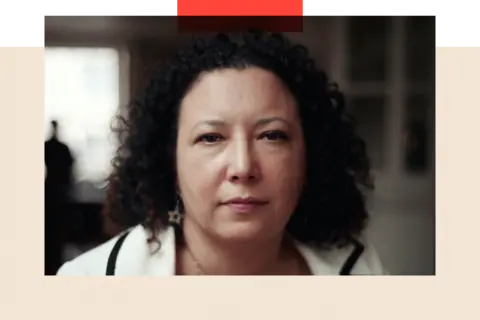 PA
PA
Maya Forstater was compensated for unfair dismissal
Ms Forstater went on to set up the campaign group Sex Matters, and was among those celebrating outside the Supreme Court on Wednesday.
There have been other similar cases brought against employers since then. Sex Matters lists 11 settled or ongoing cases on its website.
But other high-profile cases have also shaped the broader debate.
In March 2020, 23-year-old Keira Bell took legal action against the only children's NHS gender clinic, saying she should have been challenged more by medical staff over her decision to transition to a male whilst a teenager.
Although she eventually lost her case, it started a chain reaction, which led to a shake-up of gender services for children and young people.
And in 2021 the Sussex University professor, Kathleen Stock, quit her job after being accused of having transphobic views. She had published a book that questioned whether gender identity was more significant than biological sex.

 Getty Images
Getty Images
She denied being transphobic but was subjected to a student campaign to remove her from her post. The university was later fined for failing to uphold freedom of speech.
These and other cases put an uncomfortable spotlight on a debate that many preferred to ignore or dismiss as mainly happening on social media, because it was too tricky and using the wrong language could lead to abuse.
Yet fundamental questions were being raised about freedom of speech, how we treat each other and how you define a woman. The need for clarity had become overwhelming.
In terms of equality law, the Supreme Court ruling provided that.
For women's groups there is sheer relief that biological facts will now drive decisions.
But for many trans people there is distress. Even though they still have protections under the Equality Act, for many it does not feel like that. They worry that harassment will increase.
Activist Charlie Craggs, who is a trans woman, told the BBC it was really sad that this tiny community of less than 1% of the population was being "thrown under the bus".
Supreme Court ruling in practice
Crucially, the ruling provides a clear framework for what equality laws mean. The EHRC says it is "working at pace" to update its guidance, and expects that to be ready by the summer.
It has already made it clear that if a single-sex space, like a toilet or changing room, is women-only, that means biological males who identify as women should not use it.
It says instead that trans people should use their "powers of advocacy" to campaign for third spaces, such as unisex toilets.
And it has said it will pursue the NHS if it does not follow the latest ruling.
Health service guidance on single-sex wards currently says that "trans people should be accommodated according to their presentation, the way they dress, and the name and pronouns they currently use".
Currently this allows trans women to be offered beds on women-only wards.
The NHS says its policy is under review.
Former Supreme Court judge Lord Sumption says that while the ruling means organisations can exclude trans women from women only facilities, they are not necessarily obliged to do so.
He told Radio 4's PM programme that in sport, for example, it would be down to individual governing bodies to decide who is allowed to compete in women's sport.
"They could decide to allow trans women to compete on the same basis as biological women, some sporting authorities do, although I think that in light of the latest judgement, they would be wise to say so expressly in their rules," he said.
British Transport Police has been the first body to actually change its policies. It says strip searches of people in custody will be carried out by officers of the same biological sex
It means a trans woman would be searched by a male officer, and a police officer who is a trans woman would not be able to search a biological woman.

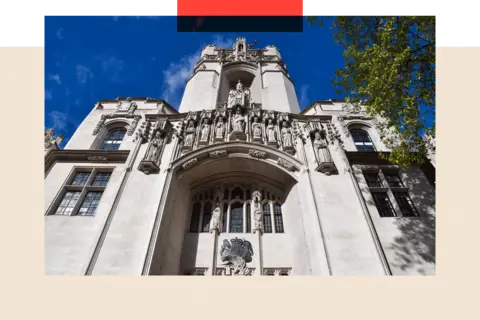 Getty Images
Getty Images
The domestic violence charity Refuge says the ruling will not change the way it operates.
Its chief executive, Gemma Sherrington, says, "we remain firmly committed to supporting all survivors of domestic abuse, including trans women".
But for many businesses, sports clubs and other organisations it is too soon to know what this will mean in practice.
They will need to see the detailed guidance from the Equality Commission first. Until then it is difficult to know how much change, if any, they will need to make or what new issues might arise.
Some organisations will also have to decide whether they have the space and money to provide so-called third spaces or unisex facilities
For trans people there is also a lot of uncertainty. They will have been used to using spaces which correspond to their gender identity - changing that may be difficult and, for some, frightening.
The Equality Commission expects to publish its new statutory code of conduct by the summer. Only then will these questions begin to be answered.
Top picture credit: Reuters
BBC InDepth is the home on the website and app for the best analysis, with fresh perspectives that challenge assumptions and deep reporting on the biggest issues of the day. And we showcase thought-provoking content from across BBC Sounds and iPlayer too. You can send us your feedback on the InDepth section by clicking on the button below.

 1 month ago
62
1 month ago
62
